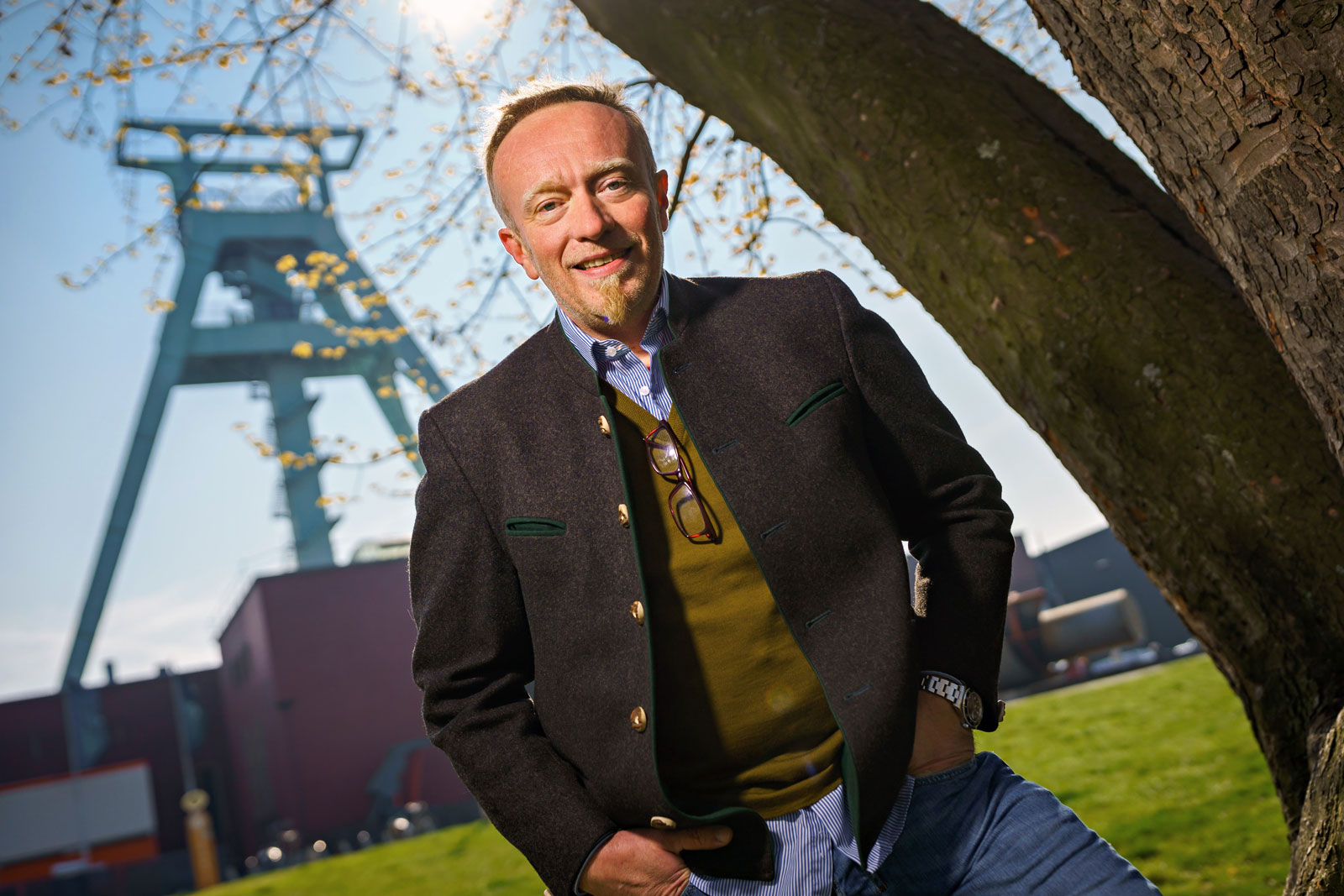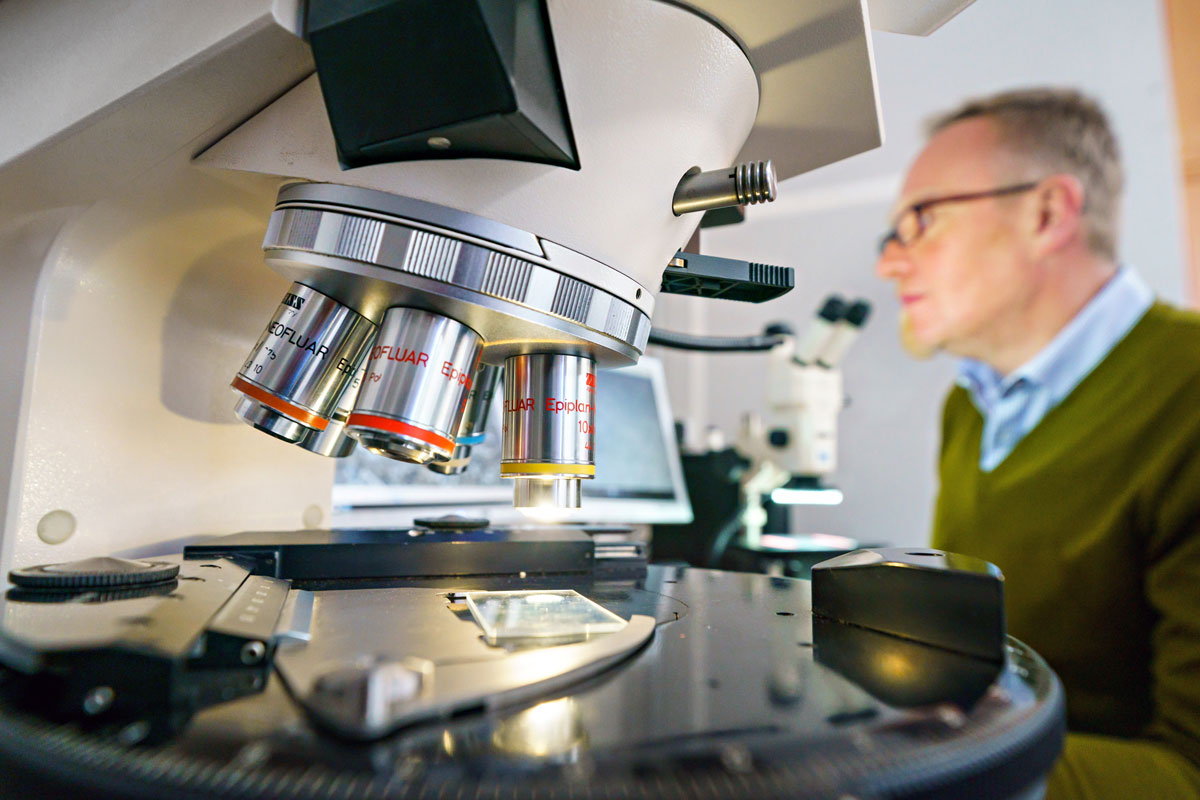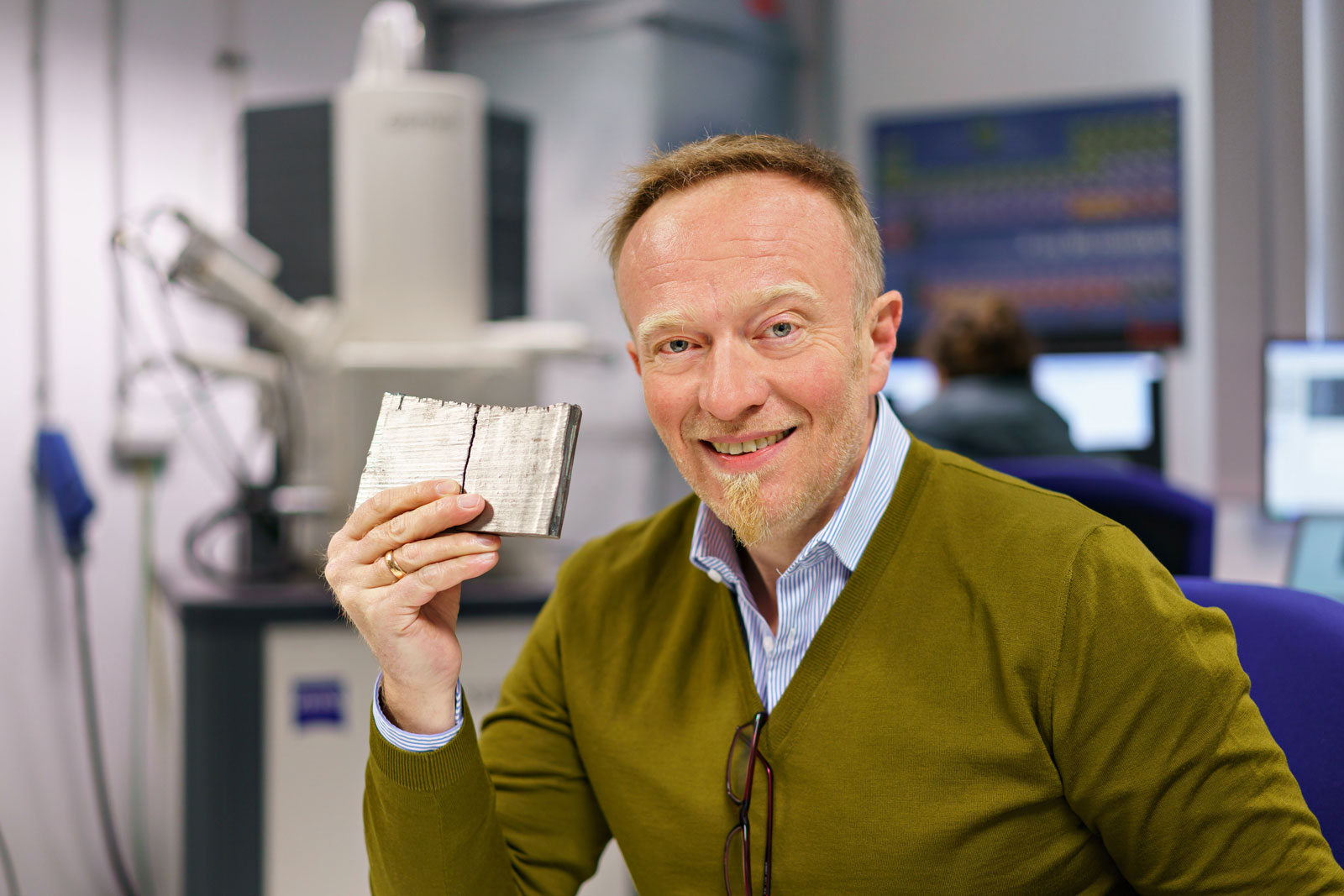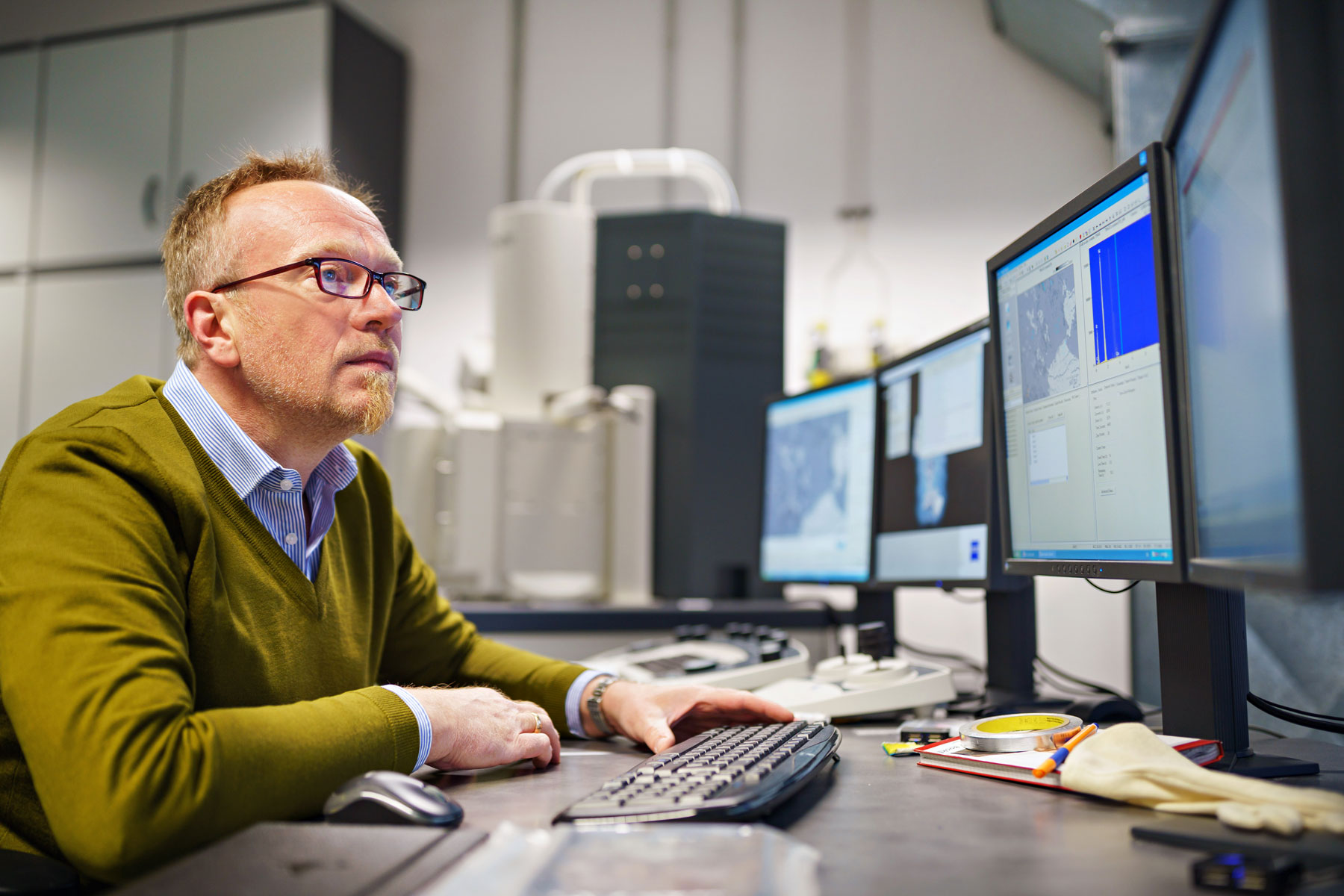Prof. Prange is a materials scientist who investigates the spread of rust and how plastics age. Areas in which his findings are applied include the conservation of industrial heritage, but also the development of innovative synthetic materials.

The Ruhr Area is crammed with legacies from the industrial revolution. Can we preserve all of them?
Prof. Michael Prange: Every legacy bequeaths an identity in its own particular way. And the industrial culture of the Ruhr Area also has a national significance, too. So, this is a question that has to be assessed and answered by those working in the humanities. From the perspective of material science, I have to say "no”, when I’m asked this question. Not everything can be preserved. There are both financial and conservation-related reasons, why this is so. The costs of saving something can most certainly exceed its intangible value.
Industrial culture is like a Trojan horse – a beautiful exterior under which danger lurks. When looking at the steel headframes, it is frequently not obvious whether or not the material under the surface is decaying.


So, conservation is a task for perpetuity?
Prof. Michael Prange: Yes, conservation is something that will always been needed, just like a funeral parlour. Regardless of whether it’s made of rock, metal or plastic – everything that we wish to keep, should be preserved for perpetuity as discretely and redeemably as possible. To this end, we test materials such as stone preservation agents, and explore the ageing process of plastic, for example.

How do you transfer your knowledge to society?
Prof. Michael Prange: The methods we develop can be equally used to investigate the rust on a vintage car as on the winding tower of a mine. For example, one of the technologies we use is Optical Coherence Tomography (OCT), an application familiar to those working in medicine. To put it simply, the light shows us where the damage is located under the material we are investigating. We are currently working on the development of a type of portable tomography system, which could be used to scan objects in-situ. We are also seeking to use our knowledge about how plastics age, in order to develop new types of synthetic materials that will decompose most faster and better than currently is the case. One way perhaps of eliminating our mountains of plastic waste.
Vita – Prof. Dr. Michael Prange
As a materials scientist, Prof. Dr. Michael Prange’s principal focus is on rust and material damage. His expertise is needed for everything from the legacies of mining culture, to the archaeological finds made in connection with the Battle of the Teutoburg Forest. As deputy head of the Research department and head of the Material Sciences research area at the Deutsche Bergbau-Museum Bochum – Leibniz Research Museum for Geo-resources, he is simultaneously the Professor for Materials Science at the THGA. Prof. Prange was also appointed Vice-President for Research, Development and Transfer at the THGA in September 2019.


